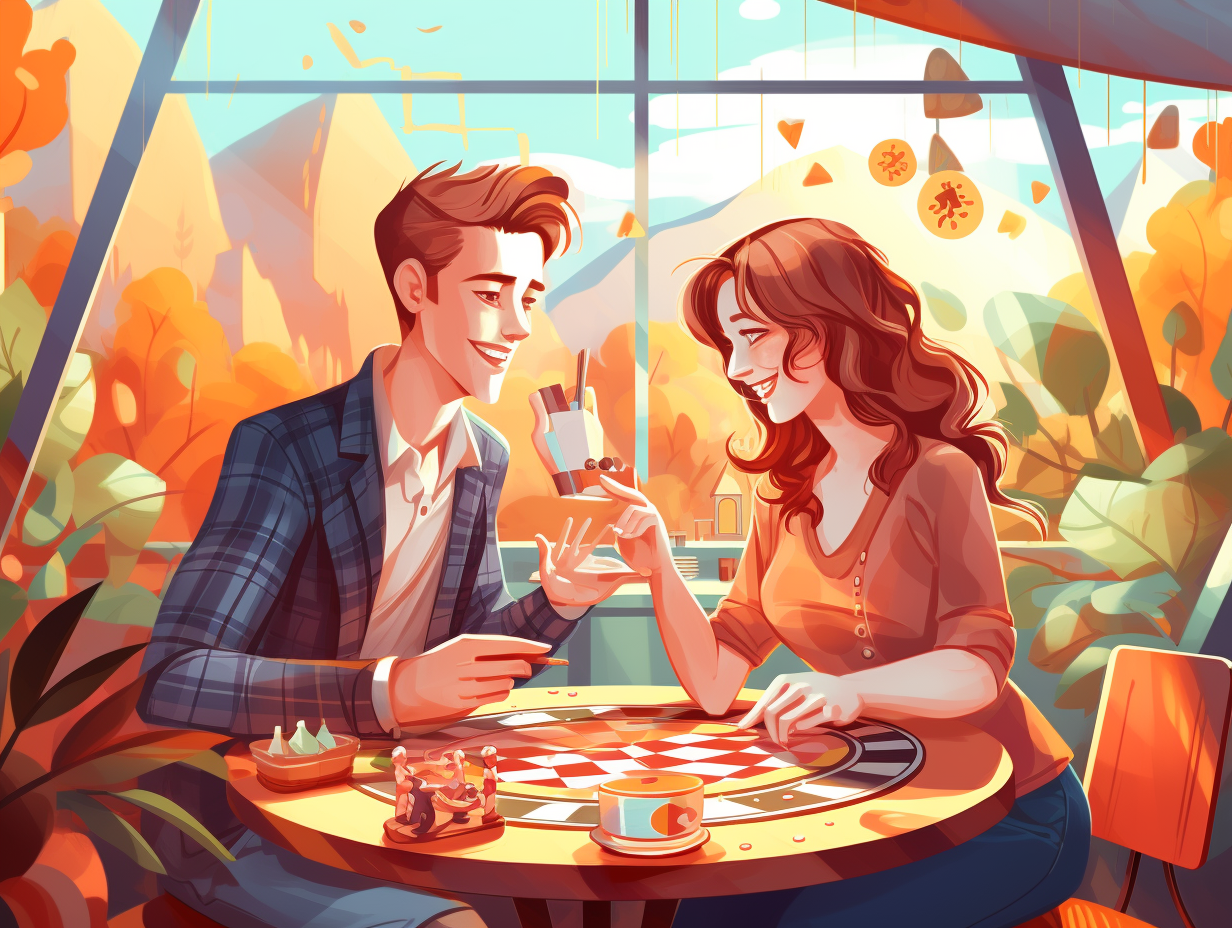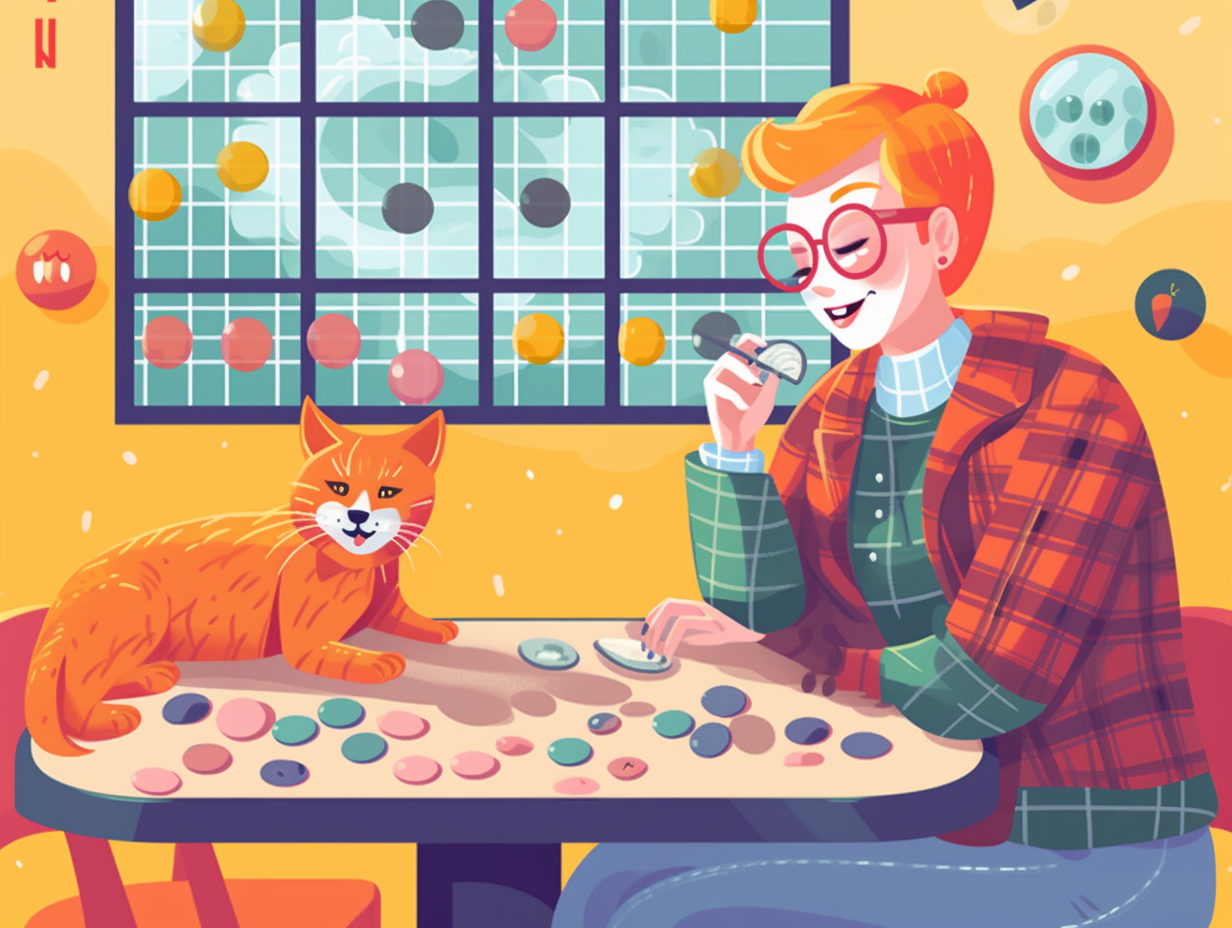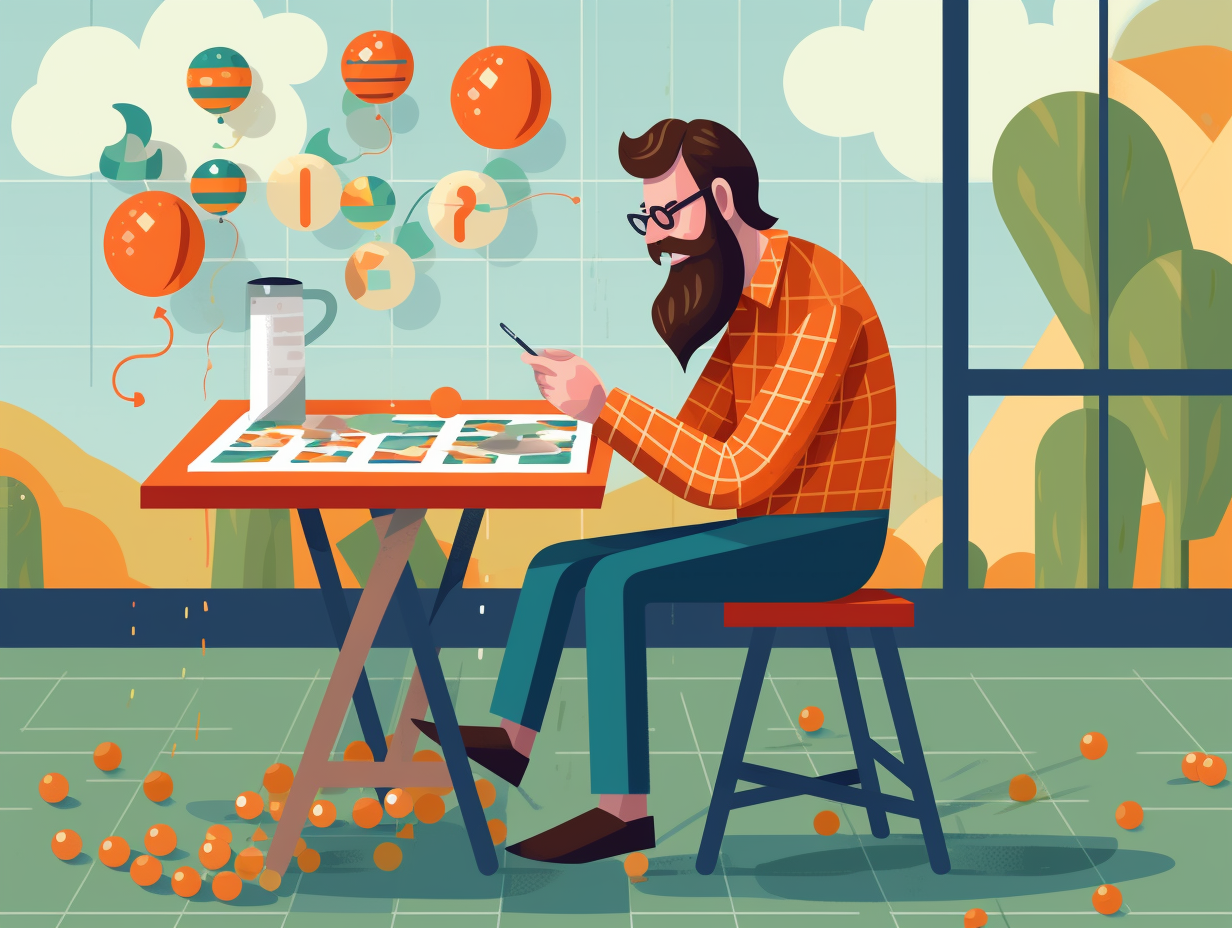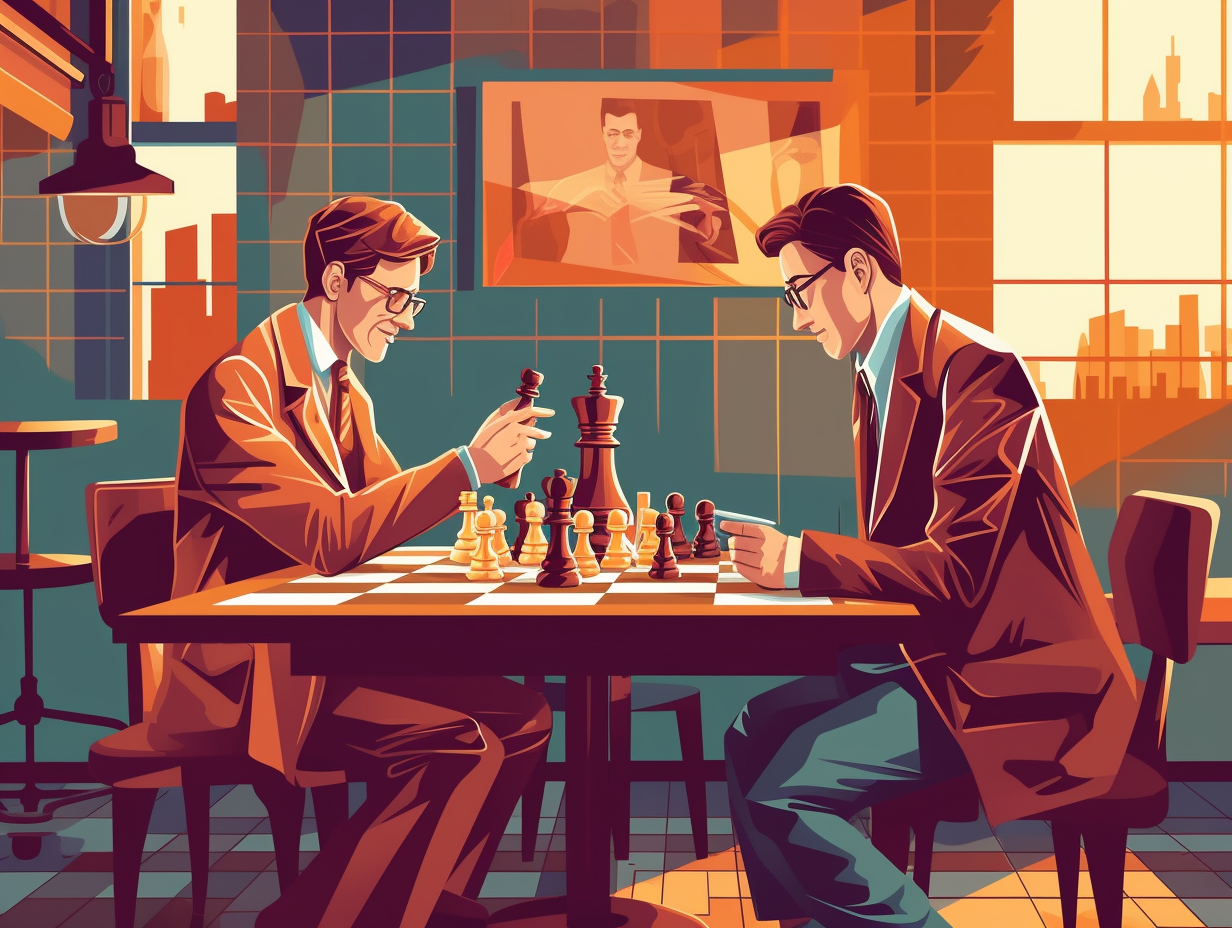Discover the Unexpected: Top 11 Unbelievable Fun Facts About Bingo!

1. Bingo's Internet Debut
Before bingo was sliding into your DMs or Netflix and Chilling on your screens, it had to battle dial-up internet and pixelated graphics just to make its online debut: in the 1990s, bingo broke free from the confines of brick-and-mortar halls, and hopped aboard the internet train, eventually jazzing itself up with sleek graphics, animations, and the nifty addition of virtual reality experiences to keep players entertained and chatting in their PJs from the comfort of their own homes.
Source => whatgadget.net
2. Birth of Bingo: Beano to Bingo
In a dramatic twist worthy of Shakespeare himself, one fateful slip of the tongue catapulted a humble game of beans to the giddy heights of global fame – and it's been a journey filled with anticipation, camaraderie, and every player's fervent dream to shout out that singular, euphoric proclamation: Behold, the birth of Bingo hinges on a serendipitous error when a player called out "Bingo" instead of "Beano" after completing a winning pattern. Before that fateful day in 1929, the game was known as "Beano", using dried beans to mark the numbers, until New York toy salesman Edwin S. Lowe introduced it to the masses and the jubilant cry of "Bingo" reigned supreme, culminating in the much-beloved pastime we still enjoy today.
Source => osdia2397.org

Did you know that the iconic board game Risk became the inspiration for strategy game legends like Axis & Allies and Settlers of Catan? Discover the fascinating world of board games and their impact on modern gaming culture. 🎲💡
=> Fun Facts about Board-Games
3. Beano: Georgia's Bean-Shouting Game
Before bingo was all the rage, folks in Georgia were shouting "Beano!" like ecstatic legume enthusiasts: the popular game of bingo got its start in 1929 when New York toy-salesman Edwin S. Lowe stumbled upon a carnival game in Georgia called "Beano," which was modeled after a European lotto. Intrigued, Lowe tinkered with the Beano board, working out over 6,000 number combinations, and ultimately began manufacturing what we now know as bingo in the early 1930s. This quintessential pastime has since been immortalized in church halls and lodges alike, making good use of both old-school bingo boards and shiny electronic marvels.
Source => museumofplay.org
4. The Improbable Bingo-pocalypse
Picture this: a Bingo card-stacking contest so intense, it puts Las Vegas card sharks to shame! But alas, the "Bingo-pocalypse" can only remain a figment of our imaginations: in reality, there are over 552 septillion unique Bingo card combinations, but due to printing limitations and the tedious task of manual randomization, we're left with significantly fewer cards available for gameplay. Nevertheless, disposable paper and electronic cards keep the dream alive for all the Bingo enthusiasts out there!
Source => en.wikipedia.org

5. Bingo: The Laughter-Packed Medicine
They say laughter is the best medicine, but who knew that the cure could be found in Grandma's favorite pastime: Bingo, which traces its roots back to Italy's "Le Lotto" in 1530, now boasts around 60 million players in the United States, with women outnumbering men in playing the game. This lucrative pastime has North American enthusiasts parting with over $90 million each week, contributing to its annual revenue of a whopping $10 billion - and with a global market reach, this figure swells to over $20 billion in sales every year.
Source => centerstageartists.com
6. Bingo: Italy to UK Shores
From humble beginnings in the boot of Italy to a full-blown British invasion with daubers at the ready: Bingo's history hails from the land of pizza and pasta in the 1500s and made its way to UK shores in the swinging 1960s, resulting in over 288 licensed bingo clubs and 350 online sites gracing the United Kingdom today.
Source => nationalbingoday.co.uk
7. Flex Your Brain with Bingo Brawn
Who needs a muscular gym rat when you can flex your brain with some bingo brawn? That’s right, flex those cerebral muscles and feel the brain gains – all thanks to our beloved bingo: Regularly playing bingo has been shown to improve cognitive abilities such as brain processing speed, mental strength, and memory skills, leading to better academic performance and overall cognitive development in students.
Source => 24-7pressrelease.com
8. Doctor's Orders: Laxative Legacy
Ever wondered why the Brits yell "Doctor's Orders" during bingo games and feel a sudden urge to visit the loo? Well, we've got the scoop: Number 9, colloquially called "Doctor's orders," traces its roots back to WWII when army doctors prescribed laxative pills as the go-to remedy for impacted soldiers.
Source => en.wikipedia.org
9. Dancehall King becomes Bingo Baron
Who needs disco when you've got dabbers? Meet Eric Morley, the dancehall king who waltzed his way into becoming the bingo baron of Britain: In the 1960s, Morley founded Mecca Bingo, transforming his dance venues into a network of purpose-built bingo halls that rapidly spread across the UK, creating a veritable cultural revolution and turning Mecca Bingo into a household name.
Source => en.wikipedia.org

10. Edwin Lowe and the Spicy Meatball of Fun
Bingo: a game so enthralling that its originators in 1530 Italy might've declared, "Mamma mia, that's-a spicy meatball of fun!" But who knew there was a New York toy salesman named Edwin Lowe who commercialized the game in 1929, and a mathematician named Carl Leffler who created over 6,000 unique Bingo cards in the 1930s? By 1934, America was smitten, hosting 10,000 rousing games a week, and despite some side-eye from naysayers, Bingo became a go-to fundraiser for countless charitable causes.
Source => ncregister.com
11. Beano to Bingo: The Klutzy Gamer's Legacy
In a bean-spilling twist of fate, the boisterous exclamation of a klutzy gamer forever changed the course of bean-covered cardboard destiny: Edwin Lowe, seizing the opportunity, rebranded "Beano" to "Bingo," introduced cardboard cards and metal tokens, and unleashed upon the world the 75-ball and 90-ball versions we know and love today.
Source => varsity.co.uk




